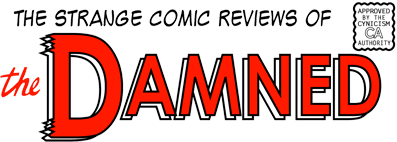

Activity Book
by Lynda Barry
(An excerpt from What It Is, to be published
by Drawn & Quarterly in the Spring of 2008)
Writing is a mysterious process leavened by concrete exasperation. In my experience it's not particularly fun and it's not even particularly pleasant, but for those who make a habit of writing, it is necessary and fundamental to the way we live our lives and way we see ourselves. Just how it happens is, honestly, not something that can be easily explained. The breakdown of rational processes ultimately leads to highly irrational conceptualizations of random and inexplicable phenomenon. I don't know: I cannot necessarily explain the process by which words are conceived and born across the medium of fingertips through this keyboard and laptop. To a degree, any attempts at explication seem futile, borne from the basic frustration of having such a large sector of conscience activity thought so summarily blanketed by perfect opacity.
In this regard, teaching someone how to write has always struck me as a uniquely fatuous endeavor. Once you escape the mechanical elements of syntax and diction, sentence structure and paragraph organization (the bare minimum of which must consequentially become instinctual in terms of minute-by-minute production), the actual generative process remains inherently unknown. Where do you get your ideas? Damn good question, I'll be sure to let you know as soon as I find out. Anyone who has been following the novel I've been serializing on this site for a few months now can probably attest that in terms of my own personal inspiration, the resulting ideas are often dark and famished creatures - I don't know why these things always end badly. It's just the way my mind seems to work. These are the ideas that come to me, and the way these stories end (invariably unhappily, for those keeping track) is simply a consequence of the way my logical mind perceives the world.

Those who write regularly are, I suspect, used to the somewhat murky nature of our innermost thoughts: unless you develop some kind of magic formula, it's all an inexact science. (And writers who work by formula are probably by definition formulaic writers.) These processes are no less mysterious to Lynda Barry, and her stream-of-consciousness advice is - while primarily composed of common-sense writing exercises that will be familiar to anyone who has ever read a book on writing or took a creative writing workshop - tinted with enough mysterious intimation and personal revelation to make the journey no less fascinating than the supposed goal. That's the secret, inasmuch as there is a secret: the voyage is the goal, and the most interesting, the most inexplicably essential aspects of fiction or memoir writing occur on the margins, the result of serendipitous occlusions that can neither be accounted for or planned. There's a Magic Cephalopod hanging over each of us, waving its tentacles in the breeze as we try desperately to make forward progress in a frustratingly lateral field.
Activity Book is an excerpt from a forthcoming volume (What It Is) composed of tutorials culled from Barry's experience teaching a writing course called "Writing the Unthinkable". It's a very apt title for a course - as much as I tend to distrust writing instruction, I can respect the honesty of any class that admits up-front that insight is quite literally an unthinkable advancement. Time, error and trust (in the strength of your own ideas and your ability to follow through on them) are the essential ingredients. Time is patience - there are numerous points throughout the book where Barry cautions her students to be patient, and to resist fighting against a lack of ideas - "block" - by keeping your mind occupied elsewhere, be it on doodles or formal exercises. The idea (and this is something that unfortunately eludes us habitual typists) is to keep your pen moving, to keep the pen connected to the paper by whatever means necessary, giving inspiration the optimum environment to flourish whenever it does happen to arrive (taking its own sweet time.)

Barry's work carries a unique flavor that seems well suited to such an amorphous topic. Rather than merely producing a didactic sequence, she seems to have produced a narrative out of the very act of creation: charting a specific, tangible course through unnavigable waters, drawing arrows to empty spaces that only the reader can fill. The constant questioning throughout the book, the drawing out of information and revelation on the part of the reader, serves a dual purpose of both introducing the prospective writer to the dramatic and imagistic possibility of their own familiar and supposedly banal experiences, and also making the passive reader aware of the vast areas of mysterious territory lying between their experiences and their ability to communicate these experiences. It is there that inspiration lurks, waiting in shadows to accost the unwary traveler.
And it is to Barry's credit that she makes no attempt to minimize or trivialize the forbidding nature of this process. Reading and rereading the sample pages presented in Activity Book, I kept stumbling across the same sense of ominous dislocation, reinforced throughout by Barry's willingness to expose her reader to the drafty currents of vast and tractless ideas unmoored in our minds. This may well be a useful volume for aspiring writers, but more importantly it is also something unique: an approach to blank autobiography, a uniquely formatted comic that uses the sequential possibilities of collage and the didactic possibilities of narrative to create a pretty much sui generis hybrid of all the above. Based merely on the excerpt presented here, What It Is may very well become the most interesting comic release of the coming year.






No comments :
Post a Comment